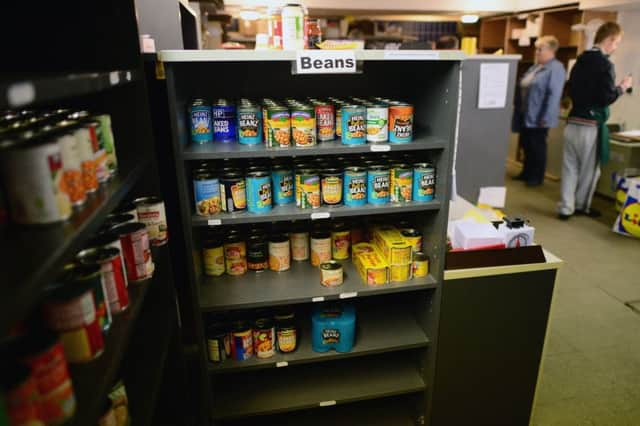Report shows '˜shocking' picture of acute poverty in Scotland


Citizens Advice Scotland warned that the state support network is failing vulnerable people, forcing them into extreme poverty.
The study found that one in every 42 enquiries to the service is related to food bank referrals, a 47 per cent increase since 2013-2014, while the number of people needing crisis grants – emergency cash payments – has more than doubled over the same period. One third of people who attend Citizens Advice Scotland appointments looking for food bank referrals have children, while one in ten are homeless.
Advertisement
Hide AdAdvertisement
Hide AdExperts say that recent changes to the social security system, benefit rates not keeping pace with inflation, low pay, insecure work and rising costs of living have all contributed to people’s decreasing resilience to income shocks.
John Finch, right, an advisor at the Citizens Advice Bureau in Leith, said he had witnessed a notable increase in people living in dire conditions before seeking help.
In the report, ‘Living at the Sharp End’, Citizens Advice Scotland said people were falling into extreme poverty after losing access to benefits or state support – leaving them without even basic necessities.
One woman, a single mother with two young children, contacted an Edinburgh bureau for help after her tax credits stopped abruptly. She was told she would receive a letter within seven to ten days explaining why, to find the error had occurred after the benefits system had issued an overpayment – which she now has to refund.
Susan McPhee, head of policy and public affairs at Citizens Advice Scotland, warned that the social security system is “simply not working” for vulnerable people and urged that Scotland should assert that “extreme poverty has no place in our society”.
She said: “When reports like this have been published in the past, the standard reaction of the UK government has been to say that there is a support network in place that prevents people falling into destitution. Our evidence today shows beyond dispute that this is simply not the case. If it were, there would be no need for foodbanks at all, yet Scottish CABs had to give foodbank advice over 7,000 times last year, and our report shows that too many Scottish families are struggling in severe poverty.”
Almost two thirds of people surveyed by CAS said they sometimes cut down on gas and electricity, while 71 per cent said they sometimes cut down on food. Over half of the survey respondents said that money worries have an impact on physical health, and almost two thirds said it had an impact on their mental health.
A Scottish Government spokeswoman said: “We share CAS’s concerns about poverty in Scotland. It is clear that the UK government’s continued welfare cuts alongside benefit sanctions and delays are consistently pushing people into crisis situations.”